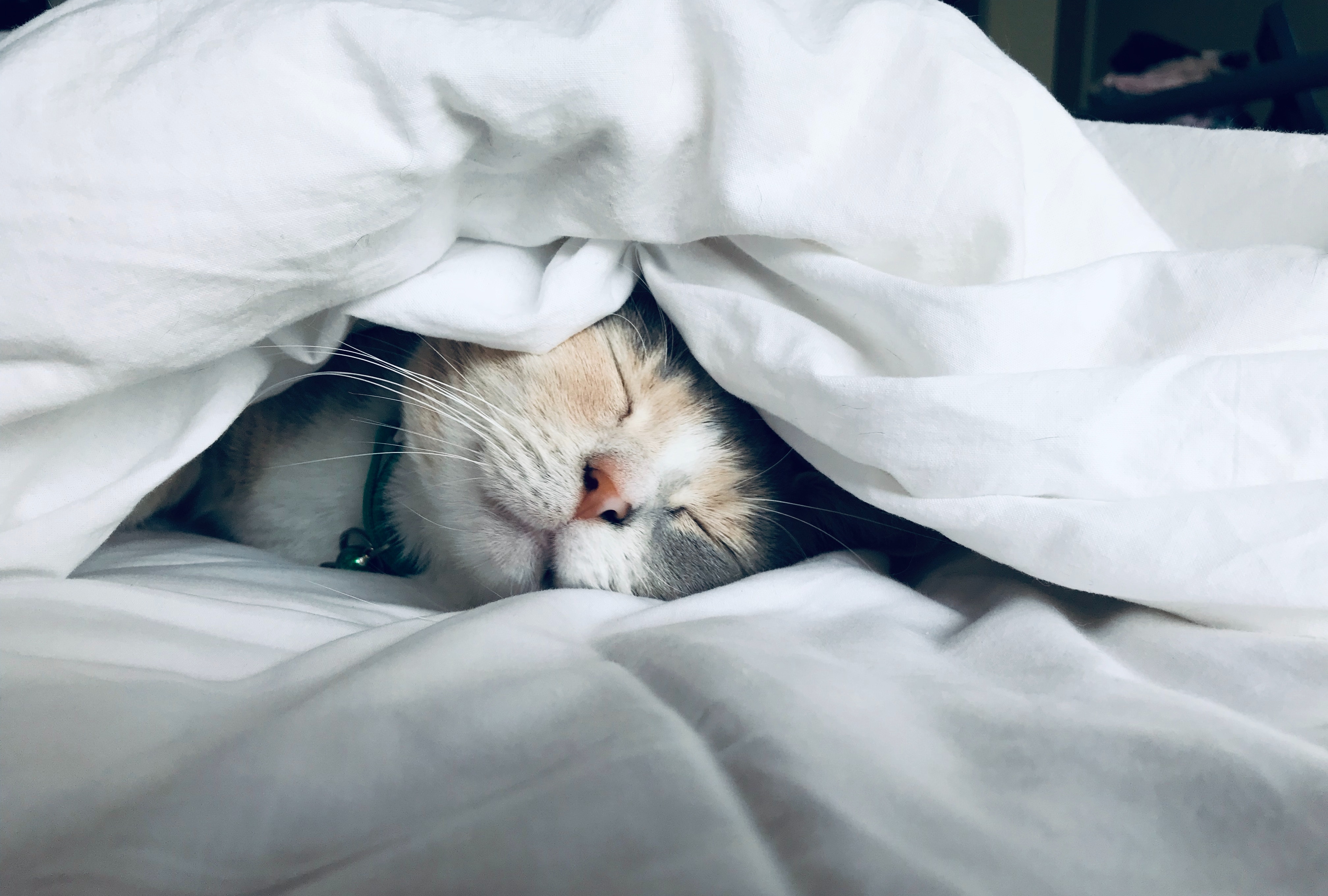You snooze, you lose… body weight that is.

Why adequate shuteye can make the battle of losing weight that much easier.
It’s no secret that a poor night’s sleep leaves you feeling less than ideal the next day. It’s when we sleep that our bodies repair and rejuvenate. Long term sleep deprivation can have serious side effects, but as anyone who’s ever spent the night watching the clock go from 3:00am to 3:01 to 3:02 and then some knows, inadequate sleep leads to decreased concentration and brain function, low energy, and a general off feeling the next day.
As if you need more reason to aim for a good night’s sleep, you can add body weight to the laundry list of things sleep effects. While a night spent tossing and turning can hinder the most determined weight loss efforts, a blissful night’s rest sets you up for diet success, bringing a whole new meaning to the adage, “you snooze, you lose”.
THE CONNECTION BETWEEN SLEEP AND WEIGHT MANAGEMENT
The amount and quality of your sleep affects the hormones in the body that control feelings of hunger and fullness—two feelings that have a BIG impact on day-to-day weight management. These two hormones are ghrelin and leptin. Ghrelin, which is produced in the GI tract, is the hormone that stimulates appetite, causing you to feel hungry. Leptin is produced in the fat cells and is responsible for sending a signal to your brain that you are full.
When we’re well rested these hormones work in balance doing their duty to alert us when it’s time to eat, and time to put the fork down. However, when you are sleep deprived, levels of ghrelin (the hunger hormone) rise, and leptin (the one that tells you to stop eating) plummet, and this sets the stage for overeating and/or irresponsible eating choices. A 2004 study published in the journal, Annals of Internal Medicine found when sleep was restricted to 4 hours per night over 2 nights, leptin dropped by 18%, while ghrelin increased by an average of 28%. But not only did subjects experience these feelings, they acted on them too. Researchers found that after sleeping poorly the subjects were more inclined to eat sugary, refined carbs. A 2010 study published in The American Journal of Clinical Nutrition found similar results; just one night of reduced sleep lead to subjects eating more the next day than those who got their full 8 hours.
Elevated ghrelin levels means stimulated appetite.
Low leptin levels mean your brain doesn’t get the message you are full; you don’t feel satisfied after you eat.
More often then not, when these hormones are out of whack, one of two things happens. Either you give in, portion control goes out the window and you end up eating more than you needed to, or you painstakingly stick to your guns and deny your appetite, and are left feeling hungry, deprived and disenchanted with even attempting to be healthy in the first place. To make matters worse, the changes in brain function from not getting a good night’s sleep cause us to crave junk food. None of these scenarios make for easy, sustainable weight loss success.
Simply put, not getting enough sleep leads to exaggerated feelings of hunger the next day, even if we’ve had enough to eat… and we all know how much harder it is to stick to our healthy, responsible eating habits when we’re feeling ravenous or for whatever reason just not getting full.
On the flip side, getting adequate sleep only helps us stay on track and eat responsibly. When we get enough shuteye, and our hormones subsequently work together as they’re intended to, and we feel energized and focused to go about your weight management plans as planned. Free from sleep-induced hunger-and-satiety hurdles, weight loss efforts are simply easier to maintain, and the longer those are maintained, the more weight you lose.
Have trouble sleeping in general? Both falling asleep, and getting good quality sleep is often easier said than done. To alleviate the nightly struggle, make an effort to go to sleep and get up at the same time every day to ultimately create a more regular sleep-wake schedule, and try hanging around in bed longer too. Research shows spending more time lounging around in bed lead to subjects actually sleeping more. Read more about that study, and it’s connection to weight loss here.
Moral of the (bedtime) story: aim for ~8 hours of undisrupted sleep to wake feeling well rested and to help prevent you from overeating the next day.
Spiegel K, Tasali E, Penev P, Cauter EV. Brief Communication: Sleep Curtailment in Healthy Young Men Is Associated with Decreased Leptin Levels, Elevated Ghrelin Levels, and Increased Hunger and Appetite. Ann Intern Med. ;141:846–850. doi: 10.7326/0003-4819-141-11-200412070-00008
Am J Clin Nutr. 2010 Jun;91(6):1550-9. doi: 10.3945/ajcn.2009.28523. Epub 2010 Mar 31.